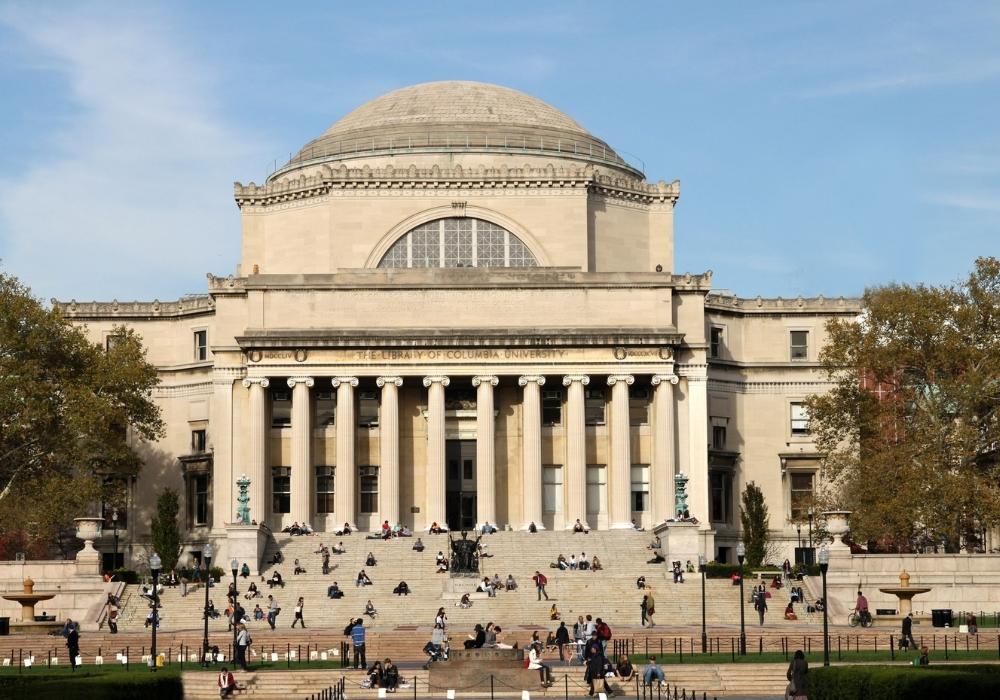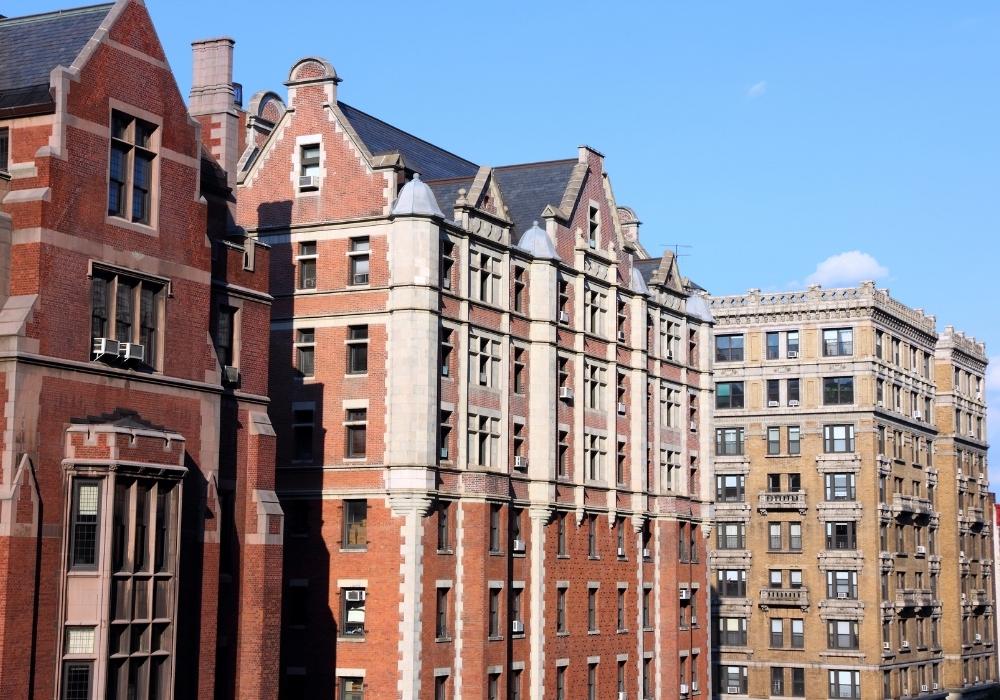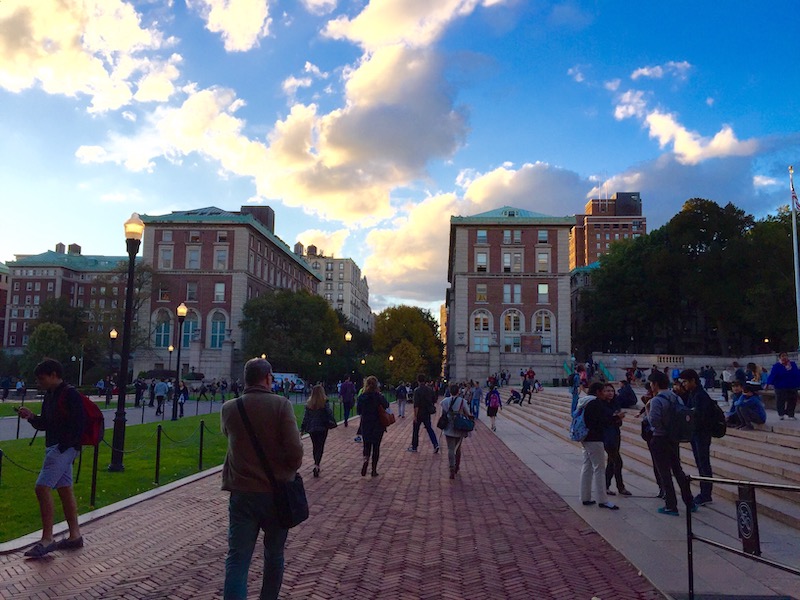We’ve discussed college interviews before, but we’ve come across some interesting information about how Columbia’s interview process works, and want to share our new insights with you.
This is the document Columbia admissions uses to train alumni interviewers. It’s quite long, and high school is a busy time; full of tests and clubs, and college applications. Therefore, we’ve summarized the information contained within this document for you in this article. We hope that this will help you approach your Columbia interview with confidence, and ease any nerves you feel. Let’s jump in!
Who Does the Interviews?
Interviews are conducted by members of The Alumni Representative Committee (ARC), graduates of Columbia who have established themselves professionally the world over. Generally, alumni set these interviews up by requesting students near their location. Sometimes interviews of particular students are also assigned, but that’s rarer. All of the logistics involved take place through an online portal.
There are upsides and downsides to this approach. For students in more populous areas, it’s more likely that they will find an interviewer, especially for students who live in New York City itself. Students in more remote or rural areas may be out of luck, however, depending on whether any Columbia graduates happen to live nearby.
Interviewers are instructed to make sure there are no conflicts of interest when conducting interviews. Thus, if you happen to know a Columbia alumnus, they will be unable to conduct your interview (this is doubly true if your parents went to Columbia). This is meant to keep the process fair and impartial.
How the Columbia Interview Works
Interviewers will contact you, and give you times they are available to schedule an interview within the next two weeks. Interviews can take place in three ways:
- In person
- Via telephone
- Via video-chat
The pandemic and the increase in telecommuting and video chat generally has greatly increased the popularity of this third option. Alumni are asked to take into account ease of scheduling and a student’s ability to access transportation when setting up an interview.
An interview is supposed to take around 45 minutes and should take place in a neutral setting, such as a cafe or office building if it is in person. While some may run a little longer, they are not supposed to go for over an hour, nor should they be too short.

What an Interview Contains
The goal of an interview from Columbia’s perspective is twofold:
- Learn more about you
- Give you a good impression of Columbia
To this end, ARC gives interviewers some questions they should avoid, and some topics to focus on. These do not necessarily translate into questions you will be asked, but the same topics will crop up. They may be in an altered form, but we recommend you be ready to respond to the following prompts:
- What are your interests besides school work?
- To which of your non-academic activities are you most committed? How has this affected your academic coursework?
- What do you have in common with your closest friends? How do you differ from them?
- How important is diversity in the type of educational environment you seek?
- What is appealing to you about Columbia in particular?
- What specific book, journal, or article have you read in the last year that had a significant impact on your thinking or perspective?
Interviewers are asked to avoid the following questions and topics:
- How much financial aid will you need?
- What other schools are you applying to? Which is your top choice?
- Any other applicants.
With these questions, interviewers seek to learn who you are outside of the classroom, what you’re passionate about, and what you will bring to campus. Notice that none of the questions are about your grades, classes, or test scores. Columbia has your transcript and letters of recommendation; they don’t need more information about you at school. Instead, they are seeking to learn who you are outside it, and how you spend your free time.
Thus when you are preparing for an interview, consider which of your extracurricular achievements you are most proud of, which you are most devoted to, and what each of them says about you. Also, consider why you applied to Columbia, and what specifically about the school draws you in. If there are any questions you still have, the interview is also the best time to ask them.
Interview Reports
After an interview concludes, your interviewer writes a report on the experience which is submitted to admissions officers within two weeks. The report consists of two pieces, the first is a recommendation from 1 to 5 of how well the interviewer thinks a student would fit at Columbia, and the other is a few short paragraphs in the interviewer’s thoughts.
While the written section has no strict guidelines for a response, Columbia is looking for the interviewer to answer the following questions:
- How would the student fare in the core or in the engineering curriculum?
- Any sense of the student’s character or intellectualism?
- Can they learn from others and utilize this information to gain new perspective?
- Do you see a match between this candidate and Columbia or New York City?
The point of these questions is to let admissions officers know how you will fit at Columbia. They want to see that you are excited to learn, have developed genuine passions, and will be able to contribute to the community at Columbia.
The amount an interview affects an admissions decision varies. Both good and bad interviews are taken into account, but generally, interviews only confirm what admissions officers already suspect about a candidate, for good or ill. It is the borderline students, who have strong profiles that still leave questions for admissions officers, where interviews make the biggest difference.
An amazing interview cannot save a poor candidate, and a terrible interview cannot sink a stellar one. It is the boundary case where interviews matter most and can tip the scales of an admissions decision.

Case Studies
ARC concludes its guide with a pair of case studies, which compare an admissions officer’s take on two students with an interviewer’s. While this has clearly been edited to remove all relevant details we can still learn things from it.
Student 1:
- The admissions officers are impressed by the student’s grades, test scores, and extracurriculars as represented in their essays.
- They are less impressed by the student’s “Why Columbia” essay, though it is technically proficient.
- The interviewer is impressed by the student’s intelligence, but doesn’t see as much passion as they want for their extracurriculars or other interests.
- The interviewer didn’t see any strong passion the student had for Columbia, they were knowledgeable about the school, but did not convince them of their interest.
Student 2:
- The admissions officer was impressed by all aspects of the student’s profile, but had some questions about their interest in Columbia.
- The interviewer was impressed by the student’s intelligence and passion for their extracurriculars.
- The interviewer was also impressed by the student’s interest in Columbia, and saw how well they would fit at the school.
Student 1 was not admitted to Columbia, while student 2 was. While the interview was not the sole reason for this, it did help confirm the admissions officer’s decision. For student 1, it showed that they were right to be cautious about their passion, while for student 2, it reassured admissions officers about their fit.
In your own interview, try to demonstrate your passions deeply. If you are enthusiastic about a subject or activity, don’t be afraid to show it off. You should also try to show off your interest in Columbia as an institution. This includes asking thoughtful questions of the interviewer.
Final Thoughts
Interviews are often challenging, but knowing what questions you will be asked, and what the interviewer is looking to learn, helps you to prepare in an intelligent way. If you’re looking for more tips on acing your interview, check out our article on college interviews, which contains more general tips for preparing for interviews.
If you want help in your preparations, or need further guidance on your college journey, schedule a free consultation with us today. We have a depth of knowledge about what colleges want to see in applicants, and are always happy to help students achieve their collegiate dreams.








